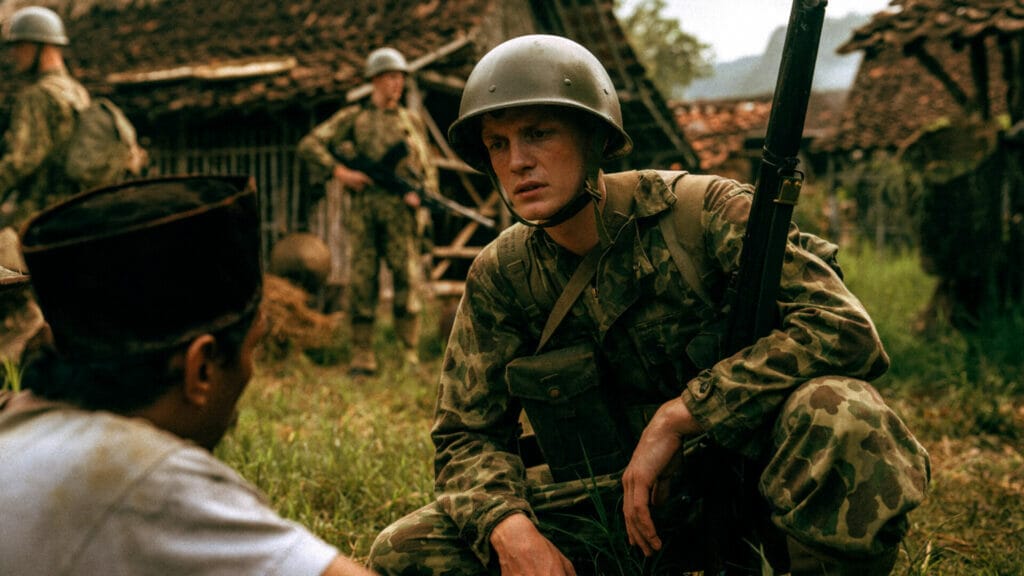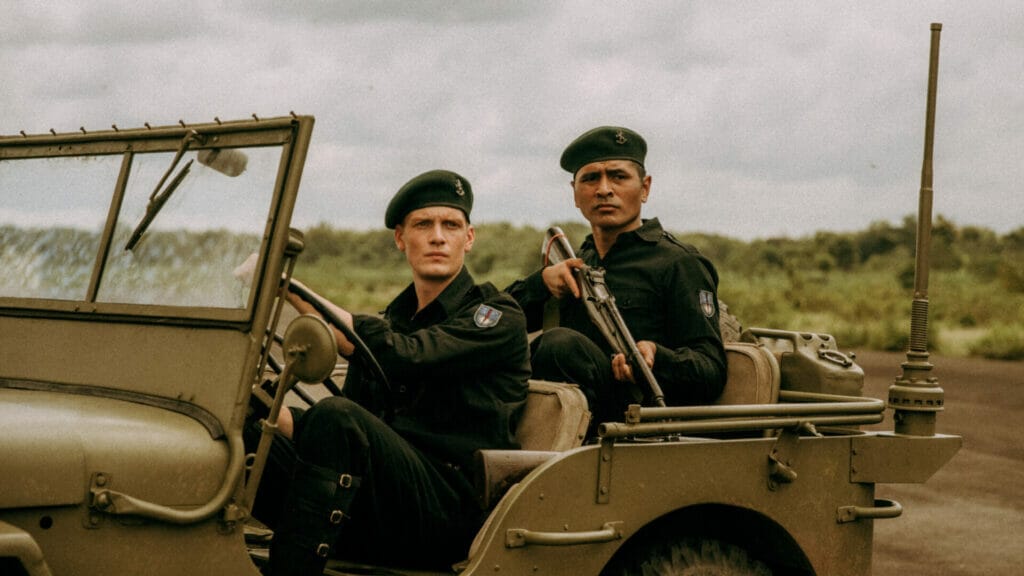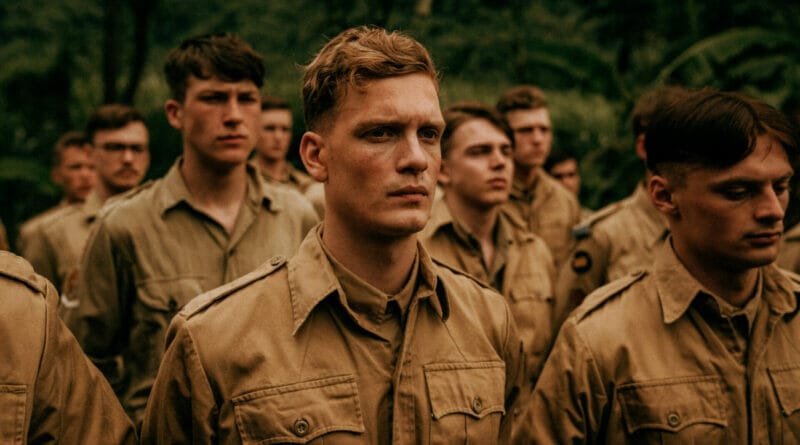The East presents a flat and oddly paced premise, when this film drags, it REALLY drags. However, this Dutch historical drama has glimpses of excellence in it’s lead and in it’s direction.
I sat down, I pressed play, and I laughed. I have to bring it up but this is by no means a demerit in my book. I laughed when what felt like the 15th studio animation danced on my screen. It felt like that episode of Family Guy where Peter and Brian see a movie that is preceded by many misleading studio intros. Moving on, The East is a film by director Jim Taihuttu that follows a young Dutch soldier when he deployed to post-WWII Indonesia to suppress a rebellion. My first impressions of this film were met with the opening close-up of our principal figure, Johan De Vries.
When going through a story’s narrative, it always starts with the subject. Whether it’s through voice-over, through actions, or through backstory, we always begin by asking “Whose story is this?.” My favorite way to answer this question is through the subjective close-up. Watching someone think. This is the moment where the actor embodies the character in deep thought and that is how ‘The East’ begins.

As a character odyssey, ‘The East’ succeeds, but as a war thriller, it misses the mark. The film explores a pocket of WWII-era history that doesn’t get much light in textbooks, which in itself is interesting enough to serve as a vehicle for Johan’s story. However, I felt this constant teeter-tottering between what this film wants to be. Does it want to explore this character more deeply or does it want to be an intense and gritty war film?
Not to say it can’t be both, but ‘The East’ just isn’t. As a result of its uncertainty, the film is oddly paced. In its 137 minute runtime, you will find gaps and pockets of empty scenes that don’t exactly further the story or expand on our principle figure. With scenes like these, it’s hard to stay invested.
The film’s protagonist is excellently portrayed by Martijn Lakemeier, who embodies a tortured veteran that has seen the inside of a bloody war. We see two sides to Johan, his life as a soldier and his life back home after his tour. In the beginning, I thought the glimpses into his past served to reinforce his present life. However, I found it to be the other way around. The present served to reinforce Johan’s complicated past in the military, which kind of threw me for a loop. I wasn’t sure which storyline was the more dominant, not that there has to be one, but Taihuttu flipped an established convention on its head and succeeded.

The characters surrounding and occupying Johan’s story are just as interesting as Johan. From The Turk to Johan’s parents, every character receives some sort of unraveling as the film went on. Not only did their scenes reveal more and more about their own characters, but they expanded on our protagonist. They all worked in harmony to reveal characteristics unique to their own respective characters and it was… kinda beautiful. For example, we are introduced to Johan’s father, Johan De Vries Sr. Throughout the film, he tracks as a villain spending his days rotting in a prison for his hand in the Nazi uprising.
For the small amount of screentime the father receives, it’s so telling of not only his character but of his relationship with his son. Johan visits his father in prison to tell him of his mother’s death. The interaction feels incredibly tense as his father tries to engage with Johan but all he can see is the evil his father committed. When Johan finally reveals the death of his mother, the intensity immediately disappears as Johan Sr. breaks down in tears.

No attempts to keep his composure, just raw and unfiltered emotion. And it’s an odd thing to watch, knowing he was a nazi. The theme of seeing through evil and finding humanity carries through the film, religiously. Causing some characters, perceived as antagonists, to become more than “good” or “bad”.
“The East” has obvious flaws that bog down the film by a few grade points. Even if its spotty pacing tends to lose the more dedicated viewers, the film’s lead highlights the very best parts of the film. History buffs will appreciate its dedication to telling an overlooked pocket of history, and film buffs will appreciate Jim Taihuttu’s dedicated approach to the war film genre.
Want to discuss things further? Hit us up on Twitter, Facebook, or Instagram. And for more film, gaming, anime, and TV news, trailers, and updates make sure to keep it locked right here at The Nerdy Basement. While you’re here, please consider supporting us on Patreon! It’s an easy way of supporting us so we can keep providing you with your Nerdy News!

